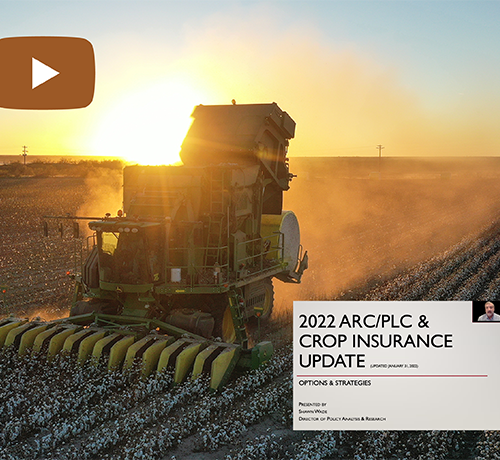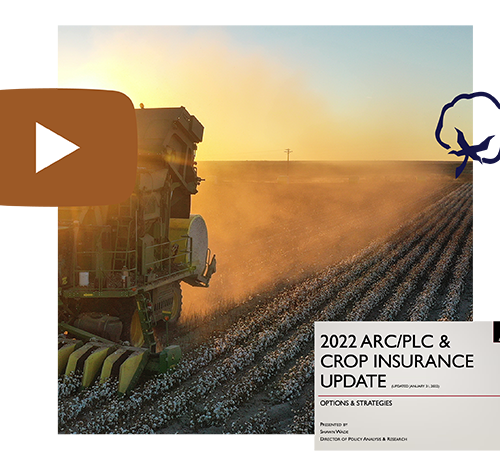USDA-AMS Partners with Texas Tech University for New Cotton Classing Facility
The U.S. Department of Agriculture (USDA) Agricultural Marketing Service (AMS) held its grand opening of the Lubbock Cotton Classification Complex on Sept. 14, 2022.
The 30,000-square-foot facility is located on the Texas Tech University (TTU) campus, where TTU students will have the opportunity to learn about grading and classing cotton samples, along with taking advantage of employment opportunities.
This is the first cotton classing facility to be located on the campus of a higher education institution.
“Texas Tech is a world leader in cotton research, and this facility provides many opportunities for our faculty and students to advance the work that is of critical importance to this region,” said TTU President Lawrence Schovanec. “We are proud to partner with the United States Department of Agriculture on this historic cotton classing facility, which will positively impact the cotton industry in West Texas and beyond.”
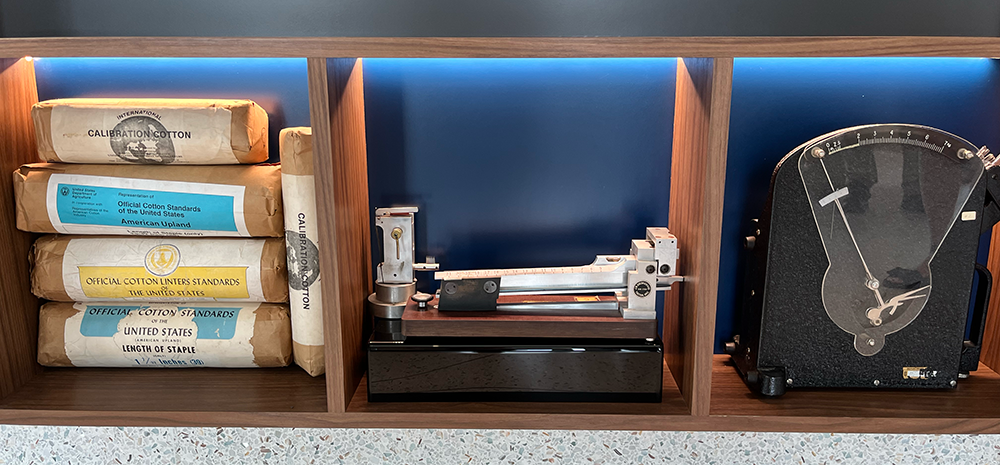
The lobby of the Lubbock Classification Complex is full of old artifacts to celebrate the rich history and future of cotton classing.
According to Bruce Summers, administrator for USDA-AMS, the partnership will serve the U.S. cotton industry by grading roughly 20% of the cotton produced in this region.
The groundbreaking for the facility was in 2019 with construction starting at the height of the global COVID-19 pandemic; however, the dream began more than five years before that.
“This grand opening culminates a long journey of planning, contracting and construction of the most modernized facility in the program’s fleet,” said Darryl Earnest, deputy administrator of the USDA-AMS Cotton and Tobacco Program. “It’s taken almost 9 years to get to this point and, while I didn’t foresee it taking almost a quarter of my career, I’m so proud of the end product.”
The new classing office in Lubbock is fully operable and will begin classing samples starting this season.
Visit the Plains Cotton Growers Instagram page to see the Grand Opening story highlight.
Rail Strike Averted?
The White House has reached a tentative agreement to avert a national rail strike.
A Department of Labor official confirmed that a deal was reached early Thursday morning after 20 consecutive hours of negotiations between rail companies and union negotiators.
The details of the tentative agreement reached have not been shared and could still be voted down by members who need to ratify the agreement to settle the matter.
-Jim Wiesemeyer

Texas Crop Acreage Certification Released
The U.S. Department of Agriculture (USDA) released the most recent crop acreage certification data (578 data) on Monday, September 12th.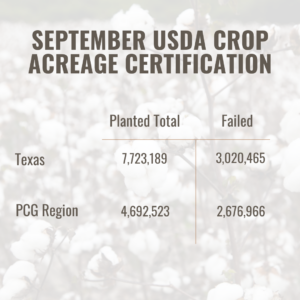
Texas estimates — combining irrigated and dryland — currently stand at 7.7 million acres planted and 3.0 million acres failed to date. Total acres failed is at roughly 39%, which is slightly up from last month’s report at 37%. Irrigated and dryland combined certified acres for the Plains Cotton Growers region came in at 4.6 million with 2.6 million failed. The percentage of total acres failed is 57% — also slightly up from last month’s report at 55%.
According to the recent report, 65% of irrigated acres and 29% of dryland acres in the PCG region remain harvestable.
These numbers are likely to change significantly in the October report as the USDA Farm Service Agency begins accounting for September crop insurance adjustments, which will include boll counts.
Export Sales Data Released
The much-anticipated U.S. Department of Agriculture, Foreign Agricultural Services Export Sales Report was released after a month-long hiatus.
Three reports were released this week: a combination of August 18 and 25, September 1, and September 8. The last report issued was on August 11 and, from the four weeks of missed reports, total sales rose around 589,000 bales.
For the week ending September 8, net sales of 100,300 Upland bales and shipments of 141,000 bales were reported. The biggest buyer this week was Pakistan, who booked 77,900 bales.
This proves what experts have projected: Pakistan’s production has decreased substantially and there is a need to meet demand within the country. Net sales of Pima came in at 1,000 bales with 1,300 bales getting shipped over the week.
